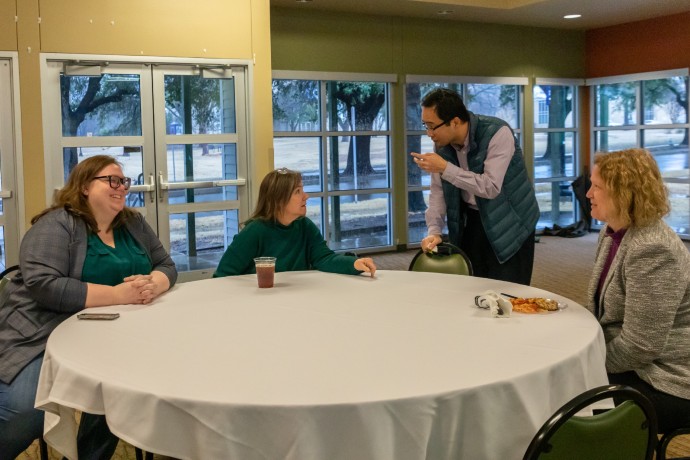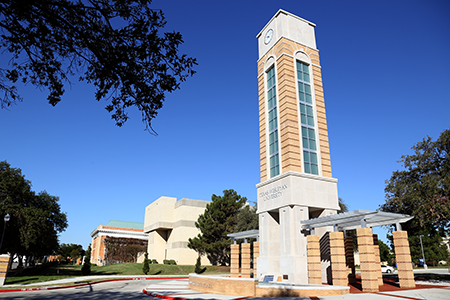Morris Foundation grant funds training for more equitable teaching practices

Ask any student or alumni about a favorite memory at Texas Wesleyan University, and you’re likely to hear about a time with one of our professors. That’s because at TXWES, we believe in the power of building connections with our students — and thanks to a generous donation by the Morris Foundation, that impact is growing stronger.
As part of a million-dollar grant, Texas Wesleyan will be investing $160,000 of the Morris Foundation gift in faculty to become even better educators. The four-year grant offers 33 faculty members each year a 25-week training course through the Association of College and University Educators (ACUE) that covers effective teaching practices.
ACUE’s courses will help strengthen student achievement, increase persistence and close equity gaps at Texas Wesleyan. The training will teach faculty how to develop more equitable grading practices, provide better access to learning, embrace diversity in the classroom, plan effective discussions, motivate students, promote a civil learning environment and more.
Dr. Kay Colley, professor of mass communication and previous faculty chair, proposed using ACUE’s training to help faculty better understand students' needs as part of an overall strategy with university leaders to improve learning experiences.
“We always talk about meeting students where they are, but we don’t always understand what that means,” Colley said. “And this will help us build that platform so we can have a level playing field for everybody and keep [students] engaged.”
ACUE was created by previous professors from various colleges, and the organization researches each individual school they work for to help build specific strategies — something Colley says differentiates ACUE from other faculty education programs.
Faculty will be able to implement the teaching tools into their classes as they learn and collaborate on which tools provide the most effective teaching strategies for Texas Wesleyan.
After completing the training, faculty will receive ACUE’s credentialing in effective college instruction, which can boost their teaching careers. According to ACUE’s case findings, first year student retention was 3.7% higher among students taught by ACUE-trained faculty. ACUE also touts on their website that “students had higher GPAs across all their courses once they were taught by at least one ACUE instructor.”
“This company shows you that what they do works,” said Colley.
Brian Builta, assistant vice president for advancement, believes the grant will help boost retention by helping faculty become more successful with students.
“In retention, the most important people are the faculty,” Builta said. “It will be a totally different place, faculty-wise.”
César Díaz, visiting assistant professor of paralegal studies, is part of the first faculty cohort. He says he’s taking part in the training to learn new teaching methods that will help better engage his students and build relationships.
“These skills that help students become more engaged not only serve a purpose of building a better relationship with students, but also build a better learning community and foster retention,” Díaz said.
The first faculty cohort kicked off with a launch party and luncheon on Jan. 24 and will begin training on Jan. 30.








